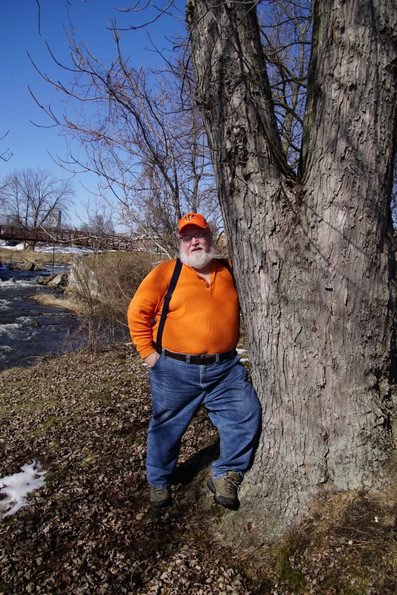
Several days ago, an Evangelical pastor whom I have known for over forty years sent me some questions, the answers to which appear below. I found his questions sincere and honest, unlike many questions I receive from Evangelicals. Far too often, ulterior motivations lurk behind some questions, but I don’t sense that here. Hopefully, readers of this blog will find my answers helpful.
Bruce, do you ever feel like you’re wrong?
I am sixty-two years old. I have been wrong more times than I can count. Over the past decade, I have, on occasion, written about my wrongness, be it beliefs I held or decisions I made. As a pastor, my beliefs evolved over the course of the twenty-five years I spent in the ministry. One of the mistakes my critics make is picking a certain point in my life, and judging me from that moment in time. In doing so, they mistakenly or deliberately ignore what has come before and after. Yes, I entered the ministry as an Independent Fundamentalist Baptist. Yes, I at one time was a Jack Hyles supporter. However, my beliefs and associations continued to evolve. By the time I left the ministry in 2005, my beliefs were, compared to those I entered the ministry with, quite liberal. I entered the ministry with a narrow, judgmental view of people who called themselves Christians. I believed that my little corner of the Evangelical tent was reserved for True Christians®. Twenty-five years later, the front door of the church I pastored said, “the church where the only label that matters is Christian.”
The same could be said of my evolution politically. For many years, I was a diehard Christian nationalist who only voted Republican. I listened to Rush Limbaugh every day. In 2000, for the first time, I voted for a Democrat. By the time I moved to my current home, I was a liberal and a democratic socialist.
And finally, the same could be said of my social beliefs. I entered the ministry as an anti-abortion, patriarchal homophobe. I pastored a Baptist church in southeast Ohio for eleven years. I was well-known for my public pronouncements against abortion, women’s rights, and homosexuality. Yet, two decades later, my views have dramatically changed. I am now considered a defender of choice, women’s rights, and LGBTQ people.
People who have never changed their minds about anything — a common trait among religious Fundamentalists — look at my journey and see a man who is unstable. I, on the other hand, see a man who is willing to change his mind when confronted or challenged with facts and evidence that render his beliefs untenable.
Intellectual and personal growth only come when we are willing to admit we are wrong. Closed-minded Fundamentalism stunts our thinking. One need only visit an IFB church to see what happens when people shut themselves off from the world and refuse to investigate and challenge their beliefs.
So, yes, I have been wrong, and I have no doubt that I will continue to be wrong. A well-lived life is one where there is ongoing progress and maturity. If I regret anything, it is that I waited way too long give in to my doubts and questions; that I waited way too long to expose myself to people who think differently from me; that I waited too long to admit to the love of my life and my children that I was wrong.
Bruce, have you ever hesitated at all in deciding to become an atheist?
The short answer is yes, especially when I first deconverted. For a time, my mind was plagued with thoughts and fears about being wrong and God throwing me in Hell. I feared God punishing me for disobedience. I lay in bed more than a few nights wondering, “what if I am wrong?”
Over time, my doubts and fears faded into the fabric of my life. It’s been years now since I had such thoughts.
Perhaps, this pastor is asking me a different question, wondering if I was hesitant about publicly identifying as an atheist. I have never been one to hesitate when I am confident that I am right. I am not the type of person who hides who and what he is, even if it would make life easier for me if I did so. In this regard, my wife and I are as different as day and night. Now, I don’t go through the streets screaming, “I am an ATHEIST,” but I don’t shy away from the label. I have often warned people who have contacted me about their own questions and doubts to NOT look at my life as a pattern to follow. (Please see Count the Cost Before You Say I am an Atheist) Each of us must choose our own path. I don’t judge or criticize atheists who choose to keep their unbelief private. Each to his own.
When I started blogging in 2007, one question I asked myself was whether I wanted to write anonymously. I chose to use my real name, but there have been moments when I wondered if I made the right choice. I have been brutally attacked and threatened by Christian zealots. The pain these people inflict leaves deep, lasting scars. Two weeks ago, this blog celebrated its fifth anniversary. Anyone who has ridden Bruce’s crazy train for years knows that me making it to five years is surprising. On at least three other occasions over the years, I have stopped blogging and deleted all of my posts due to savage attacks from Christian Fundamentalists (and, at one time, Fundamentalist atheists).
My life is pretty much an open book. I try to be open and honest, owning past mistakes and transgressions. Are there moments when I wish I had used a pseudonym instead of my real name? Sure, but it’s too late now to do so. The horse has left the proverbial barn. Even if I stopped blogging tomorrow, it would be impossible to erase my Internet footprint.
Bruce, was your transition difficult for you to accept?
I want to answer this question from two vantage points. First, was my transition from Christian to atheist hard for me to accept? Not at all. I have always believed truth matters. My life appears to my Evangelical critics to be one of a wanderer, a double-minded man (whom the Bible says is unstable in all his ways). My battle with depression is a sure sign to them that I am weak-kneed mentally. Perhaps, but I am the kind of person who is unafraid of changing his mind or being viewed as odd or different. In 2005, my mother-in-law and I had an epic blow-out. I believe I have written about this in the past. (This blow-out, by the way, totally altered our relationship — for the better, from my perspective.) Several days after our titanic battle, my mother-in-law called me. We talked about many things. During our conversation, Mom said, “Bruce, we always knew you were “different.” And she was right. I have always been the kind of person who follows the beat of my own drum, both as a Christian and an atheist. I have no doubt that my singular drum beating has caused me problems and affected the relationships I have with Polly, my children, and my extended family. I am who I am, and I have reached a place in life where I no longer apologize for being Bruce Gerencser.
Second, was my transition from a pastor to a commoner hard for me to accept? Absolutely. My entire life was wrapped up in Jesus and my calling to preach the gospel. The ministry was my life. I enjoyed being the hub around which everything turned. I enjoyed the work of the ministry, especially studying for and preaching sermons. To this day, I miss standing before people and saying, “thus saith the Lord.” I miss the love and respect I received from congregants. I miss the place I had in the community due to my position as a minister.
Walking away from the ministry and Christianity meant abandoning my life’s calling; abandoning everything I held dear. Doing so meant, at the age of fifty, I had to answer countless questions that I hadn’t thought about in years. Fortunately, Polly walked hand in hand with me when I deconverted. I can only imagine how different our lives might have been had I became an atheist and Polly remained a Christian. I highly doubt our marriage would have survived.
Do I still miss certain aspects of the ministry? Sure. Fortunately, writing has become a ministry of sorts for me. This blog and its wonderful readers are my church. I digitally preach sermons, hoping that people find them encouraging and helpful. The traffic numbers suggest that a few people, anyway, love and appreciate the content of my post-Christian sermons. And all Loki’s people said, AMEN!
Bruce, do you wonder at all about any form of an afterlife?
I do not. I have come to accept that life is short, death is certain, and once we draw our last breath we cease to exist. There was a time, post-Jesus, when I hoped there was some sort of life beyond the grave. It’s hard to comprehend not existing. I have had numerous thoughts about non-existence; about going to bed at night and never waking up; of being alive one moment, and dead the next. 2019 was a tough year physically for Polly and me. I thought about how life might be without Polly lying next to me; of not hearing the keys in the door late at night and her voice ringing out, “I’m home.”
As much as I might want for there to be life after death, the facts tell me that no such thing exists. What evidence do we have for an afterlife? None, except the words in this or that religious text. I am no longer willing to build my life and future on what the Bible does and doesn’t say. This is a good spot for me to share the advice I give on the About page:
If you had one piece of advice to give me, what would it be?
You have one life. There is no heaven or hell. There is no afterlife. You have one life, it’s yours, and what you do with it is what matters most. Love and forgive those who matter to you and ignore those who add nothing to your life. Life is too short to spend time trying to make nice with those who will never make nice with you. Determine who are the people in your life that matter and give your time and devotion to them. Live each and every day to its fullest. You never know when death might come calling. Don’t waste time trying to be a jack of all trades, master of none. Find one or two things you like to do and do them well. Too many people spend way too much time doing things they will never be good at.
Here’s the conclusion of the matter. It’s your life and you best get to living it. Some day, sooner than you think, it will be over. Don’t let your dying days be ones of regret over what might have been.
I do my best to live by this statement. If, perchance, I learn after I die that there is an afterlife, fine my me. I have no worries about the existence of the Christian God and his Heaven/Hell. I am confident that the only Heaven and Hell is that which we make in this life. That said, is it possible that some sort of cosmic afterlife exists? Sure, but I am not counting on it. I am not going to waste this life in the hope that there is some sort of divine payoff after I die
About Bruce Gerencser
Bruce Gerencser, 62, lives in rural Northwest Ohio with his wife of 41 years. He and his wife have six grown children and twelve grandchildren. Bruce pastored Evangelical churches for twenty-five years in Ohio, Texas, and Michigan. Bruce left the ministry in 2005, and in 2008 he left Christianity. Bruce is now a humanist and an atheist. For more information about Bruce, please read the About page.
Are you on Social Media? Follow Bruce on Facebook and Twitter.
Thank you for reading this post. Please share your thoughts in the comment section. If you are a first-time commenter, please read the commenting policy before wowing readers with your words. All first-time comments are moderated. If you would like to contact Bruce directly, please use the contact form to do so.
Donations are always appreciated. Donations on a monthly basis can be made through Patreon. One-time donations can be made through PayPal.
Share This Post On Social Media:






